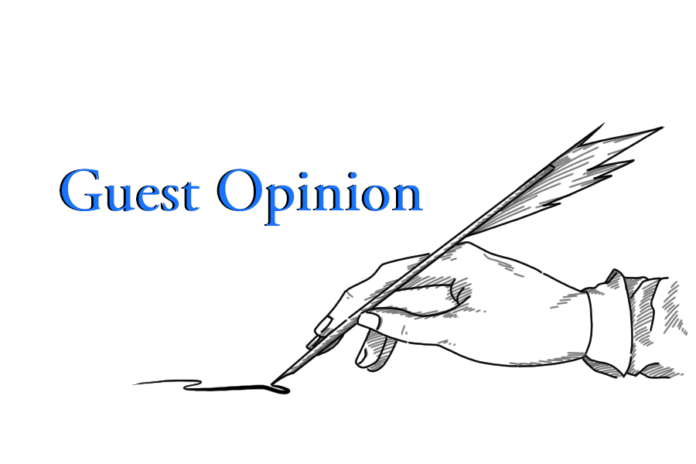Chinese exclusion set the stage for present day immigration policies, mistreatment of migrants at the southern border
Martin Luther King Jr. reminded us that, “Injustice anywhere is a threat to justice everywhere,” and the truth of this statement is evident when we examine America’s history of discrimination against particular ethnic groups.
The highly-publicized anti-immigration policies and practices currently directed toward Mexican immigrants and citizens are based on exclusion policies directed toward Chinese immigrants and citizens less than 150 years ago.
Chinese exclusion policies replaced America’s initial policy of open migration. The Chinese Exclusion Act of 1882 was the first federal law prohibiting immigration to the U.S. for members of a specified ethnicity or nationality. The Chinese Exclusion Act defined illegal immigration as a criminal offense, yet Chinese continued to immigrate to America using “illegal” methods, such as adopting a fake identity or coming across the northern and southern U.S. borders. Anti-immigration laws and policing strategically ignored Europeans immigrating into the U.S. “illegally,” making Chinese immigrants America’s initial “illegal” aliens.
Border patrols, immigration raids, detention centers and deportation were introduced and directed toward Chinese immigrants in an attempt to enforce the Chinese exclusion policies. As anti-Chinese sentiment grew, the target of exclusion policies expanded to encompass Chinese-Americans, subjecting them to exclusion practices. Their citizenship was frequently questioned and invalidated because, in the eyes of mainstream America, anyone who looked Chinese was potentially “illegal” and was treated as such.
Chinese exclusion found many unexpected supporters. First-generation and second-generation Irish-Americans ironically led campaigns against Chinese immigrants in order to establish their previously contested status as white Americans. Chinese-Americans and “legal” Chinese immigrants initially protested exclusion; as time passed, this tactic seemed futile, and many adopted the tactic of separating themselves from “illegal” Chinese immigrants, as Erika Lee discusses in her book “At America’s Gates.” In doing so, they sanctioned the unjust treatment toward “illegal” Chinese immigrants in an effort to gain better treatment for themselves. Chinese exclusion policies were rarely contested by anyone but the people being affected. This limited resistance, combined with the overwhelming support for Chinese exclusion, facilitated the entrenchment of these discriminatory practices.
The institutionalization of Chinese exclusion set the stage for America’s continued racialized and nativist approach to immigration. Harsh and unjust policies initially directed toward Chinese immigrants have since been used in attempts to control other groups. Mexican immigrants are currently the target of anti-immigrant policies and practices, and Mexican-Americans are often affected due to a misguided notion that they are all potentially “illegal” immigrants. Assertions that Chinese immigrants were unassimilable threats and stole jobs from white Americans scarily parallels the racialized rhetoric surrounding Mexican immigrants today.
Chinese that were attempting to enter or return to the U.S. were kept on Angel Island, a detention center for Chinese that was thinly veiled as an immigration station. They were subjected to dehumanizing conditions and treated as criminals as they waited for immigration officials to interrogate them and determine whether they would be permitted into the U.S. Today, America manages the largest immigration detention system in the world, and there are more immigrant children being detained under the Trump administration than ever before. Migrant families are disproportionately broken up and detained along the U.S.-Mexico border. Parents and children are detained in separate facilities, and the conditions of the detention facilities continue to be incredibly demeaning.
Border patrol along the U.S.-Mexico border has expanded considerably since it was first implemented to exclude Chinese immigrants. Immigration raids and the deportation of undocumented Mexican immigrants occur frequently, breaking up families already living in the U.S. and causing great emotional, psychological and financial distress to the victims of these prejudiced practices.
While there are far more people protesting these practices and policies than during the Chinese exclusion era, support from illogical places persists. Among supporters are those who have forgotten their own family’s history of immigration to America. Ted Cruz and Marco Rubio, two prominent Republicans in Congress, promote restrictive immigration policies, despite being the sons of immigrants. Some first-generation immigrants, including some Mexican-Americans, also perpetuate the demonization of Mexican immigrants who come to the U.S. “illegally” by emphasizing their own “earned” citizenship. And there are all of those who fall in between support and protest, indifferently accepting the injustice because they don’t believe it will affect them.
It’s ineffective to speculate about what might have occurred if Chinese exclusion was contested to a greater extent. But an important lesson emerges from this history: We must stop perpetuating or ignoring injustices directed toward a group merely because we don’t identify with them. We must stop ignoring injustices simply because we are unaffected in this moment. As long as injustice exists, there is always a possibility that we will be implicated and persecuted next due to some arbitrary aspect of our identity.
Social injustices may violate a few, but affect us all. People were affected then, people are being affected today and another group of us will be affected if we do not take a stance against injustice now. We must fight for each other’s rights, if for no other reason than to protect our own.
Written by: Nicole Matsuda
The writer is a third-year undergraduate student studying communication and sociology at UC Davis.




